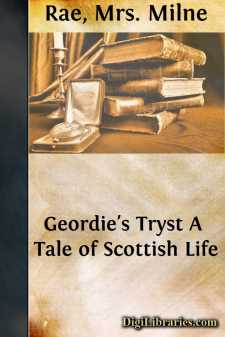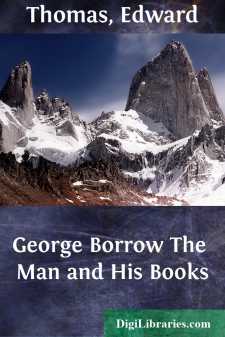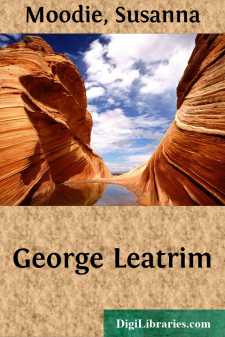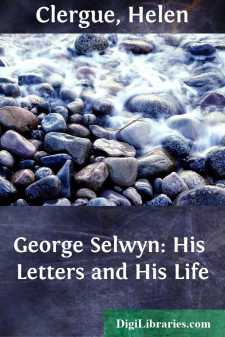Categories
- Antiques & Collectibles 13
- Architecture 36
- Art 48
- Bibles 22
- Biography & Autobiography 813
- Body, Mind & Spirit 142
- Business & Economics 28
- Children's Books 14
- Children's Fiction 11
- Computers 4
- Cooking 94
- Crafts & Hobbies 4
- Drama 346
- Education 46
- Family & Relationships 57
- Fiction 11829
- Games 19
- Gardening 17
- Health & Fitness 34
- History 1377
- House & Home 1
- Humor 147
- Juvenile Fiction 1873
- Juvenile Nonfiction 202
- Language Arts & Disciplines 88
- Law 16
- Literary Collections 686
- Literary Criticism 179
- Mathematics 13
- Medical 41
- Music 40
- Nature 179
- Non-Classifiable 1768
- Performing Arts 7
- Periodicals 1453
- Philosophy 64
- Photography 2
- Poetry 896
- Political Science 203
- Psychology 42
- Reference 154
- Religion 513
- Science 126
- Self-Help 84
- Social Science 81
- Sports & Recreation 34
- Study Aids 3
- Technology & Engineering 59
- Transportation 23
- Travel 463
- True Crime 29
Sort by:
by:
J. Cecil Hughes
Chapter ITHE ROCKS AND THEIR STORYWalking along the sea shore, with all its varied interest, many must from time to time have had their attention attracted by the shells to be seen, not lying on the sands, or in the pools, but firmly embedded in the solid rock of the cliffs and of the rock ledges which run out on to the shore, and have, it may be, wondered sometimes how they got there. At almost any...
more...
by:
Thomas Seccombe
GEORGE BORROW. It is a singular coincidence, perhaps, that during one and the same summer we should be celebrating centenaries of Samuel Pepys and George Borrow. Pepys died in the early summer of 1703; Borrow was born in July, 1803. Unlike each other in almost every respect, they are dui palor, as Borrow would say, in one very material point. The reputation of each of them has risen to such a...
more...
by:
Mrs. Milne Rae
CHAPTER I. GRACE CAMPBELL. was a chilly Scotch spring day. The afternoon sun glistened with fitful, feeble rays on the windows of the old house of Kirklands, and unpleasant little gusts of east wind came eddying round its ancient gables, and sweeping along its broad walks and shrubberies, sending a chill to the hearts of all the young green things that were struggling into life. On the time-worn...
more...
by:
Edward Thomas
CHAPTER I—BORROW’S AUTOBIOGRAPHY The subject of this book was a man who was continually writing about himself, whether openly or in disguise. He was by nature inclined to thinking about himself and when he came to write he naturally wrote about himself; and his inclination was fortified by the obvious impression made upon other men by himself and by his writings. He has been dead thirty years;...
more...
The Problem of a Preface A peculiar difficulty arrests the writer of this rough study at the very start. Many people know Mr. Bernard Shaw chiefly as a man who would write a very long preface even to a very short play. And there is truth in the idea; he is indeed a very prefatory sort of person. He always gives the explanation before the incident; but so, for the matter of that, does the Gospel of St....
more...
I. EARLY LIFE. The poet and the novelist write largely out of personal experience, and must give expression to the effects of their own history. What they have seen and felt, gives shape and tone to what they write; that which is nearest their own hearts is poured forth in their books. To ignore these influences is to overlook a better part of what they write, and is often to lose the explanation of...
more...
CASE 1. 1. Portrait of Robert Evans. Lent by Canon Evans, Bedworth. Father of G. E., and prototype of Adam Bede. 2. Diaries of Robert Evans (“Adam Bede”). Lent by Mr. Walter P. Evans, Leamington. CASE 2. 3. Portrait of Isaac P. Evans. Lent by Canon Evans, Bedworth. G. E’s brother; original of “Tom Tulliver.” 3a. Another portrait of Isaac P. Evans. Lent by Mr. W. P. Evans, Leamington....
more...
by:
Susanna Moodie
CHAPTER I. 'One of the most terrible instances of dishonesty I ever knew,' said a lady friend to me, 'happened in my own family, or, I should say, in one of its relative branches. You were staying last summer at Westcliff; did you hear Dr. Leatrim preach?' 'Yes; my friends resided about a mile from the parsonage, and were constant in their attendance at his church. The Doctor...
more...
by:
Helen Clergue
CHAPTER 1. GEORGE SELWYN—HIS LIFE, HIS FRIENDS, AND HIS AGE During the latter half of the eighteenth century no man had more friends in the select society which comprised those who were of the first importance in English politics, fashion, or sport, than George Selwyn. In one particular he was regarded as supreme and unapproachable; he was the humourist of his time. His ban mots were collected and...
more...
by:
Gustave Flaubert
INTRODUCTION The correspondence of George Sand and Gustave Flaubert, if approached merely as a chapter in the biographies of these heroes of nineteenth century letters, is sufficiently rewarding. In a relationship extending over twelve years, including the trying period of the Franco-Prussian War and the Commune, these extraordinary personalities disclose the aspects of their diverse natures which are...
more...











